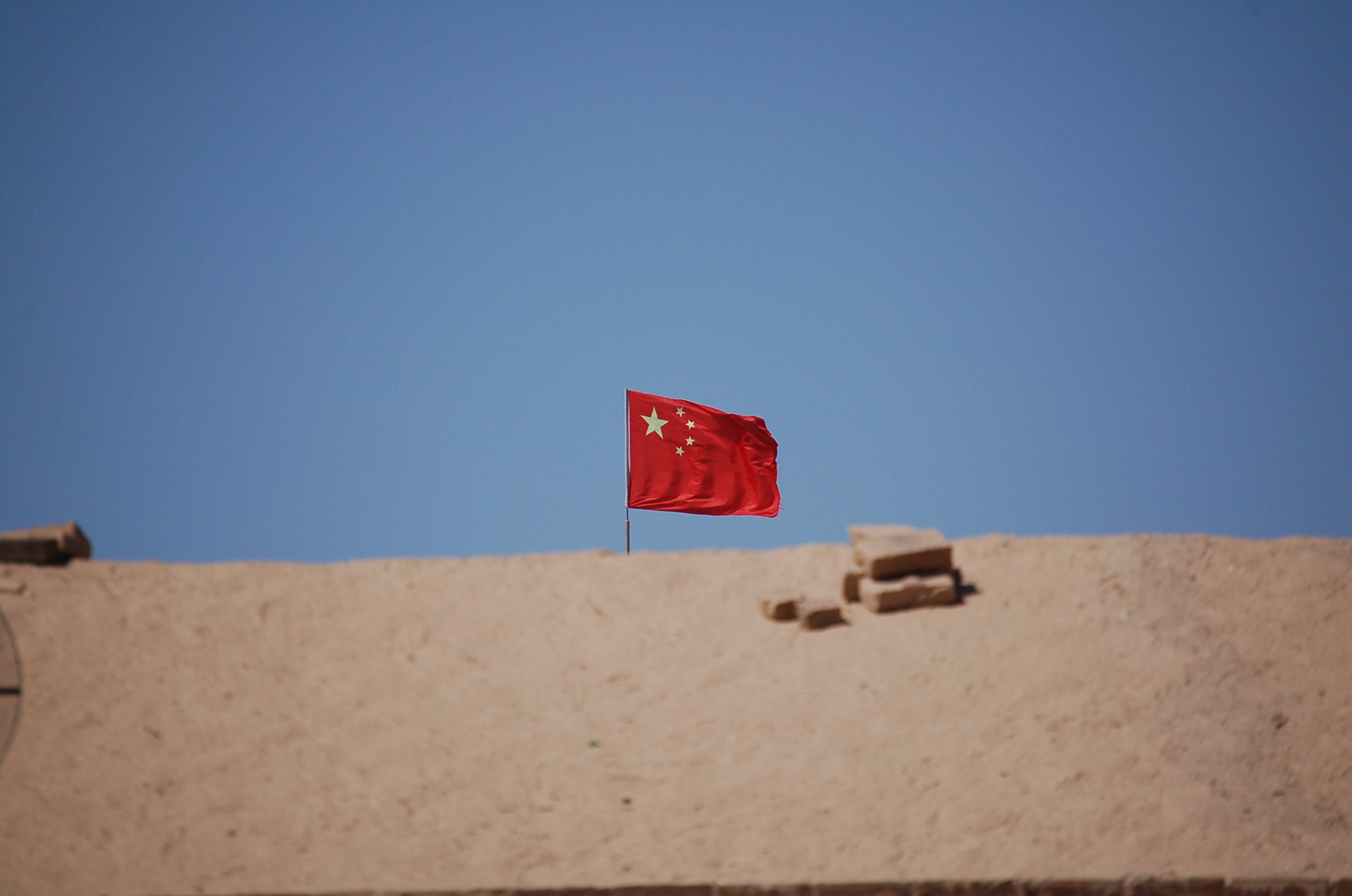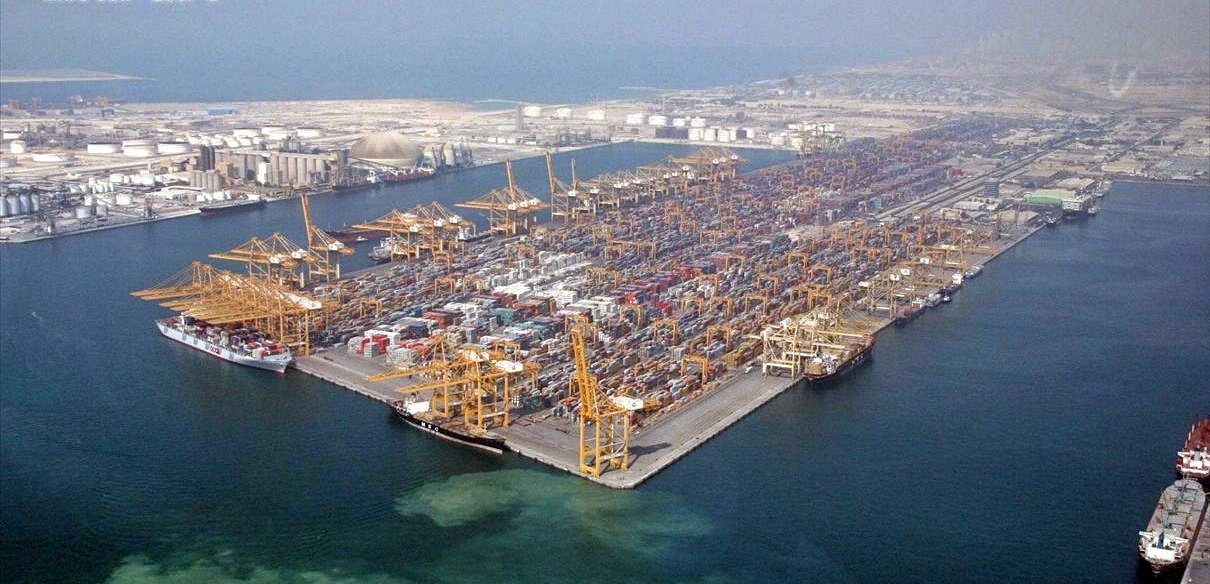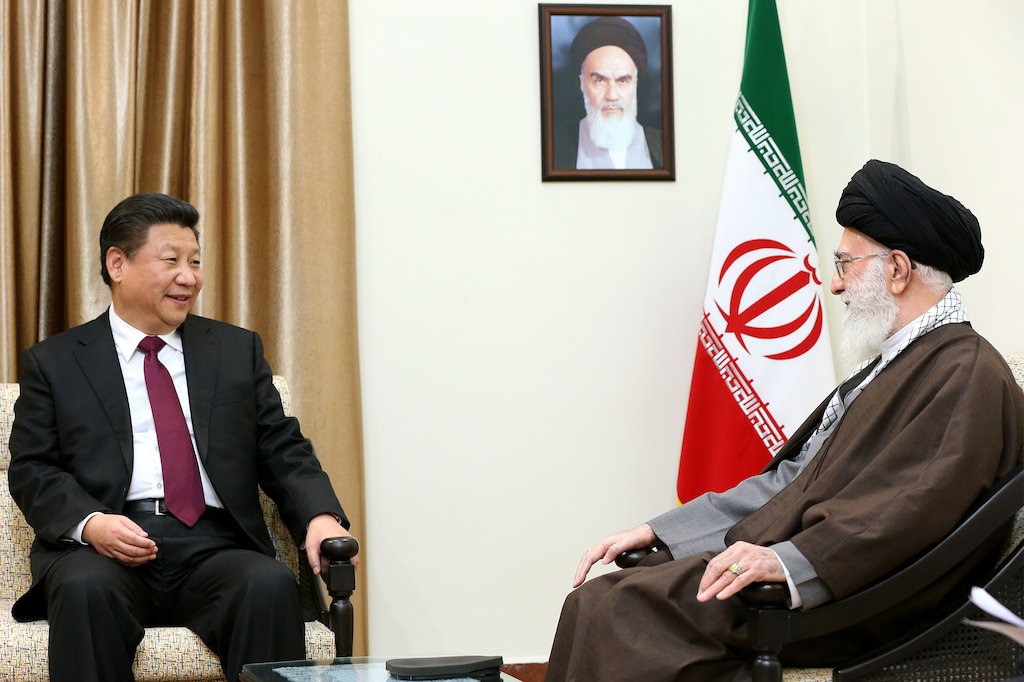US Withdrawal From Middle East Could Leave China as the Biggest Target

By Thomas Lambert
Staff Writer
31/8/2021

Picture Credit: Ed Stannard
All across the Middle East, a rumor is spreading. Locals speak of a foreign salesman, slowly drifting from village to village, possessed of an unusual skill: flawless, accent-less Arabic. No-one can agree what type of Arabic he speaks: Egyptian or Levantine, Mesopotamian or Maghrebi. Nor can anyone agree what he sells: rugs or incense sticks, camels or clothes. In fact, few even claim to know him directly: the salesman is a ghost, a creature of hearsay; he exists only in the imagination. But one feature is universal. The salesman is Chinese.
Folk belief is a curious thing: even when it isn’t strictly true, it is often emotionally true – a way of parsing up social and economic life into a few easily understood totems. What does the story of the Chinese salesman reveal? Fears of a new colonialism? Anxieties of racial infiltration? Or simply excitement – the lure of a powerful trading partner? One thing is certain: at least in the Middle East’s collective consciousness, the Chinese are here to stay.
Never before in the modern era has China been so involved in the Middle East. The principal focus has been economic: for the last 10 years, under the aegis of the Belt and Road Initiative (BRI), Chinese companies have lavished the region with infrastructure initiatives, trade deals, drilling projects – all buttressed by five state visits by Chinese President Xi Jinping since 2013. Today, China is the number-one trading partner for Iran, Iraq, Kuwait, Oman, Saudi Arabia, and Yemen; and also scoops second place for Israel and third for Qatar. Energy is by far the largest sector: 40% of China’s oil imports come from countries in the Middle East and North Africa, as does a significant proportion of its liquefied natural gas; in years to come, so too will a major share of its solar power thanks to a colossal (and colossally publicized) 2019 deal with the Saudi royal family. The zone has now surpassed Russia as the principal source of energy for China, and looks set to remain so for the foreseeable future.
Never before in the modern era has China been so involved in the Middle East.
But even though energy security seems to be the driving force behind Chinese involvement in the Middle East, the scope of the BRI has been far wider than energy alone. In the UAE, energy initiatives like the unprecedented decision to manage a major offshore oilfield as a Sino-Arab joint venture have been joined by a host of auxiliary investments – most notably the port of Jebel Ali just south of Dubai. Even as far afield as Egypt, China has been extravagant in its foreign investment strategy – with Xi and President Abdel Fattah el-Sisi entering into a $15 billion “comprehensive strategic partnership” centered around the redevelopment of the Suez Canal in 2016. In fact, every Middle Eastern country China has courted as part of the BRI has been receptive to its advances – not just Egypt and the Gulf states, but regimes as violently antithetical to each other as Israel and Iran. This should hardly be a surprise: not only is China an affluent new market; it also means diversification for a region whose trade with the West seems threatened by the setting of the American imperial sun. But the sheer scale and unanimity of goodwill towards China is remarkable. In 10 years, it has come to be seen as the region’s new business partner, its endless source of liquidity and enterprise; the loan manager who simply cannot say no.

Port of Jebel Ali, Dubai
All this suits China perfectly. China has always sought to portray its interests as purely economic, and not at all political. Two foundational policy documents – 2016’s “Arab Policy Paper” and 2015’s “Vision and Actions on Jointly Building Silk Road Economic Belt and 21st-Century Maritime Silk Road” – make it abundantly clear: China’s new relationships are to be built on the promise of trade and commerce, mutual respect and comparative advantage – engagements, in other words, at a safe distance.
Map of Belt & Road transport routes (Picture Credit: Lommes)
For the last 10 years, this narrative has allowed China to maintain official neutrality in the world’s most volatile region. Unlike the US, whose repeated attempts at regime change have usually ended in defeat and embarrassment, China demands nothing politically or ideologically from its trading partners: whatever its system of government, its human rights record, its geopolitical affiliation, if a country is interested in peaceful trade, so too is China. In contrast to familiar Western “bloc” politics, China is carrying on the “Third Worldist” traditions of the Cold War, looking for friends wherever it can find them. And so much of a boon does the BRI promise to be that most countries acquiesce to, even respect, China’s impartiality; indeed, China is the only major country that has managed to maintain good trading relations with the Gulf states, Iran, and Israel at the same time.
These lucrative trading relationships have, however, been underpinned by a crucial, if oft-forgotten, factor: US hegemony. The US military has protected international business interests across the region for years – not just tempering the theocratic ambitions of Islamist groups like ISIS, but also working to check exactly the kind of secular nationalists and socialists who might consider seizing foreign-owned industry and resources. It’s no surprise, then, that unlike Russia, whose machinations in Syria, Turkey, and Iraq have been increasingly visible since the beginning of the Syrian Civil War, China has seldom tried to undermine the US’ military efforts in the region. A US-China rivalry simply wouldn’t make sense: for 10 years, American Apache helicopters, aircraft carriers, and drones have carried Chinese business interests along in their slipstream.
China’s lucrative trading relationships in the Middle East have been underpinned by a crucial, if invisible, factor: US hegemony.
But the world is changing. US President Joe Biden is drawing American involvement in the Middle East and Central Asia to a swift and shambolic conclusion; and, as the collapse of Afghanistan has already proven, the institutions he and his predecessors have left behind are far from robust. Global business interests, it seems, have lost their iron-clad guarantee: without an endless supply of American troops and materiel, a number of Middle Eastern regimes have begun to look decidedly rickety. Chinese officials know that the installation of a hostile regime in a major oil producer could dramatically affect China’s energy security: China’s rate of import dependence for oil is over 70% – far higher than that of the United States when it was crippled by the Saudi-instigated oil shock of 1973.

US Lockheed C-130 Hercules military transport plane lands in Ali Al Salem Air Base, Kuwait from Afghanistan, June 2021
Nor is energy China’s only vital interest. The European Council on Foreign Relations estimates that more than a million Chinese expatriates now live in the Middle East – whether working abroad, studying, or on pilgrimage – and China, whether or not the impulse is geopolitically prudent, feels a duty to protect them. The civil war in Libya in 2011 took China by surprise, as the government was forced to deploy frigates in the Mediterranean in order to evacuate 29,000 Chinese nationals from Benghazi. Since Benghazi, there has been a gradual but definite increase in China’s willingness to use and display military force in and around the Middle East: the 2016 opening of an overseas military base in Djibouti; joint military exercises with Saudi Arabia; the deployment of private paramilitary forces like the “Snow Leopard” commando unit in much the same way as the UK used companies like G4S in Iraq and Afghanistan. There has even been talk of China developing a military presence in the fraught waters of the Strait of Hormuz.
Stakes are rising in every sector – economic, diplomatic, military – yet still, China is committed to coming across as non-partisan and non-ideological. Clearly, the Chinese are hedging their bets: the Middle East is so fissiparous, so fragile, that it’s not worth allying with any one state to the exclusion of others. As rosy as China’s high-profile relationship with the Gulf states looks, for example, the Chinese have been wary of becoming reliant on a single geopolitical bloc for oil. Their solution has been to trade with the Sunni Gulf states’ sworn enemy: Iran. China has been an enthusiastic partner to Iran since the Cold War, even providing assistance to Iran’s fledgeling nuclear program before it joined 2015’s JCPOA. Today, China stockpiles Iranian oil, and is beginning an ambitious plan outlined in a “Comprehensive Strategic Partnership” that promises $400 billion in Chinese investment over the next 25 years.
Yet it is precisely this relationship with Iran that might prove to be an obstacle. As much as the Chinese like to eschew traditional “bloc” politics rhetorically, the fact remains that “bloc” politics remains the essential dynamic in international relations in the Middle East. And sure enough, beneath the serene, even-handed image that China seeks to project internationally lies a canny exploitation of the sects and schisms that have characterized the region for centuries. For all Xi’s visits, and for all the rhetorical mileage China won from its involvement in the JCPOA, the fact remains that China props up Iran in the face of US sanctions, and therefore challenges the hegemony over the region that the Sunni Gulf states would otherwise have. Thanks to Iran, moreover, China threatens to make sure the destruction of a Gulf-led oil shock is mutually assured, since traders in Beijing could easily devastate the Gulf economy by flooding the market with the Iranian oil they have stockpiled. China has even begun to challenge the petrodollar system on which the power of the Gulf is founded: on March 26th 2018, the Chinese government issued the first long term oil trading contracts denominated in “petroyuan” – directly undermining the monetary mechanism that has ensured US-Saudi pre-eminence since the 1970s. The message is clear: for all the cosy rhetoric, for all the handshakes with Prince Mohammed bin Salman, China wants to keep the Gulf guessing.

Chinese Supreme Leader Xi Jinping with Iranian Supreme Leader Ali Khamenei
It would, nevertheless, be short-sighted for the Chinese to assume that the economic sway they hold over the Gulf states makes them immune to repercussions. Saudi Arabia in particular exerts soft power throughout the Muslim world via its vast network of Wahhabi madrasas, mosques, and charities – including among Chinese Muslims in Xinjiang, as well as in key BRI countries like Pakistan. If Beijing and Riyadh fell out, that could dramatically damage China’s standing in the Muslim world, and lead to all kinds of local backlash against Chinese business interests and foreign workers. This danger, moreover, is only compounded by China’s actual persecution of Uyghur Muslims in Xinjiang. For now, the Muslim and Arab worlds have been conspicuously silent on the issue (the only Muslim-majority country to object officially is Bahrain), but, with Saudi petrodollars financing the right kind of anti-Chinese propaganda, there would be nothing in theory to prevent Xinjiang becoming a pan-Muslim shibboleth like Palestine.
China’s relationship with the Gulf states is far cooler than the headlines would have us believe; but even if a certain frosty cordiality can be maintained, China’s shameless dalliance with Iran looks set to destabilize its relations with the other major player in the region: Israel. Not only are close ties with Israel a cause for suspicion and unpopularity amongst the Muslim states that comprise the “Belt” of China’s Belt and Road; but – crucially for a state whose main economic interests in the region are centered on energy security – Israel has virtually no oil or natural gas. If China is to sacrifice its relations with one of the three main pillars of the Middle East, then, it is likely to be Israel.
Sure enough, though China and Israel have traditionally enjoyed a convivial relationship, there are growing signs of estrangement. On the international stage, China seems increasingly willing to criticize Israel’s treatment of the Palestinians – with Chinese Foreign Minister Wang Yi attributing the 2021 Israeli-Palestinian conflict to Israeli “hostilities” and accusing the US-Israeli axis of “standing on the opposite side of international justice.” Such comments won China instant plaudits throughout the Muslim world, as well as favorable coverage from key media outlets like Al Jazeera – drowning out all mention of Uyghur Muslims in the same news cycle. If criticisms of its Xinjiang policies continue to mount, China may well wish to repeat the stunt. And there is anti-Chinese pressure on Israel from the Western hemisphere too: US authorities are hard at work trying to veto Chinese infrastructure projects in Israel based on security fears – most recently with regard to a 2015 contract for a Chinese shipping company to develop the port of Haifa. Other recent Chinese hostilities – most notably this August’s “massive cyber-attack” on Israel by Beijing hackers – might just tip the balance in the US’ favor.
Nevertheless, though downgrading Israel as a partner might win China acclaim across the Muslim and Arab world, it will not solve all its problems. The image of China as the Middle East’s indiscriminate creditor, its universal patron, was convincing enough when the BRI was in its infancy – when, in other words, its full economic scope was not yet apparent. As Forbes Asia correspondent Wade Shepard noted, the BRI’s beginnings were “nothing if not vague;” and this vagueness played to China’s advantage, since each country could read into the initiative whatever it wanted. At the same time, America’s continued military deployments in the region served as a convenient focal point for anti-globalist and anti-colonial resentments, allowing China to preserve that most precious of commodities: good PR. Civil unrest, infrastructure collapse, natural disaster: the US military was always the poison, and Chinese money was always the panacea.
America’s continued military deployments in the region served as a convenient focal point for anti-globalist and anti-colonial resentments.
In recent years, however, the BRI has showed signs of slowing down. Fears in Beijing of a foreign debt crisis have led to sharp retrenchments: according to research by Boston University, lending by the China Development Bank and the Export-Import Bank of China fell from $75 billion in 2016 to just $4 billion in 2019. And sure enough, resentment has already begun to bubble over in the affected territories. Last month’s explosion of protest in the port of Gwadar, Pakistan (one of the BRI’s flagship projects) shows just how much popular dissatisfaction even China’s most lucrative trading relationships belie. To the Baloch separatists who organized the protests, the Chinese were a new colonial power, and the Pakistani government their lapdogs. And though Pakistan isn’t a Middle Eastern power, it isn’t hard to imagine such movements traveling west: tellingly, the Balochs use exactly the same discourse as Middle Eastern separatists and Islamists have been using for a long time against US-backed regimes (ISIS against Jalal Talabani in Iraq; the Taliban against Harmid Karzai in Afghanistan). It seems likely that sooner or later, some combination of local ethnic nationalism or religious revivalism will force China’s hand.
For now, though, China seems be continuing down the same course: ensuring its engagements are seen as purely economic, avoiding imbroglios of the kind the US has specialized in for the last 20 years. And at the level of international geopolitics, this may well work. The fact remains that none of the three major Middle Eastern hegemons has much incentive to antagonize China: Iran doesn’t want to lose a rare friend, and will probably maintain warm relations even after Supreme Leader Ali Khamenei dies; Saudi Arabia may be wary, but its royal family is too greedy for Chinese investment to object for long; and Israel, short of deploying its nuclear weapons, can do little to worry the Chinese. But local, anti-globalist movements are a different matter. Criticizing Israel will not neutralize the threat of Islamism in a region where, by design, madrasas and mosques still dominate institutional life; avoiding commitment to any one geopolitical “bloc” will not temper the violent localism of scattered populations crammed between defunct colonial borders. In a sense, China’s attitude has been a continuation of Mao’s “Third-Worldism”: it proposes itself as a benign alternative – winning over government after government with the promise of healthy distance, moral minimalism, and mutual respect. But it has confused the map with the territory. And once the US troops leave, the Chinese might just realize they have nowhere to hide.
